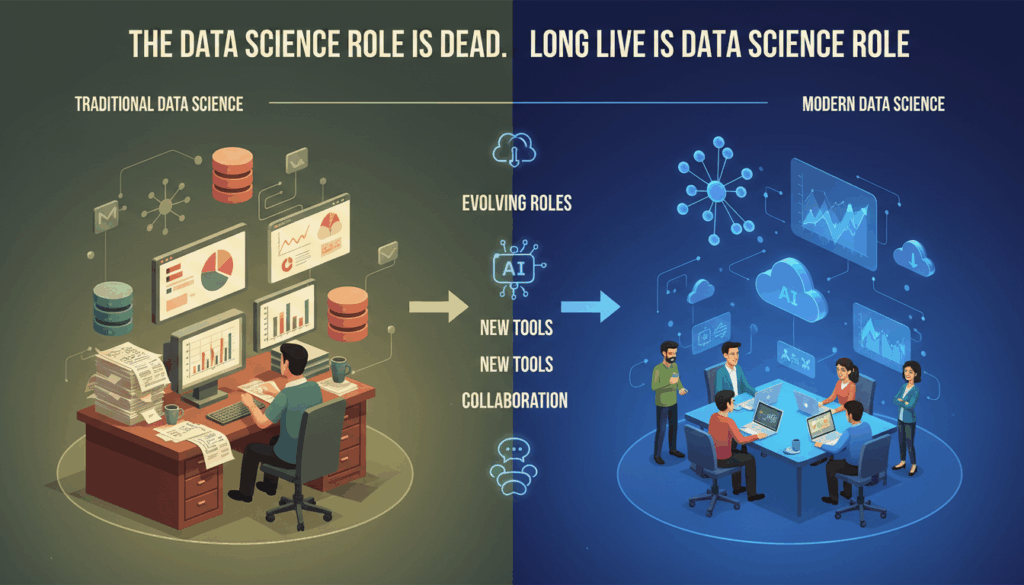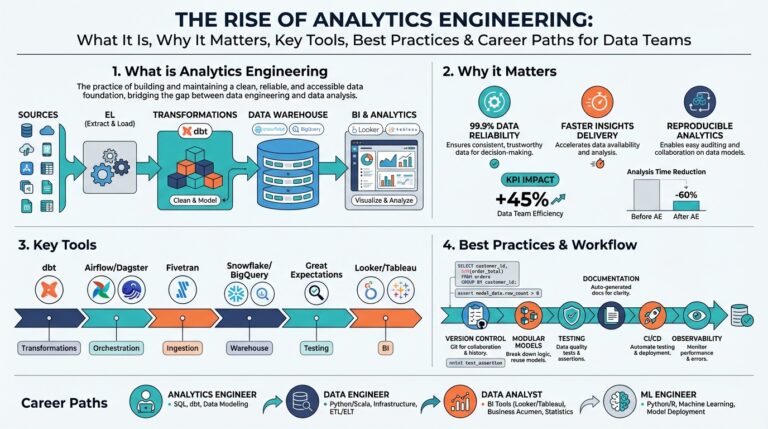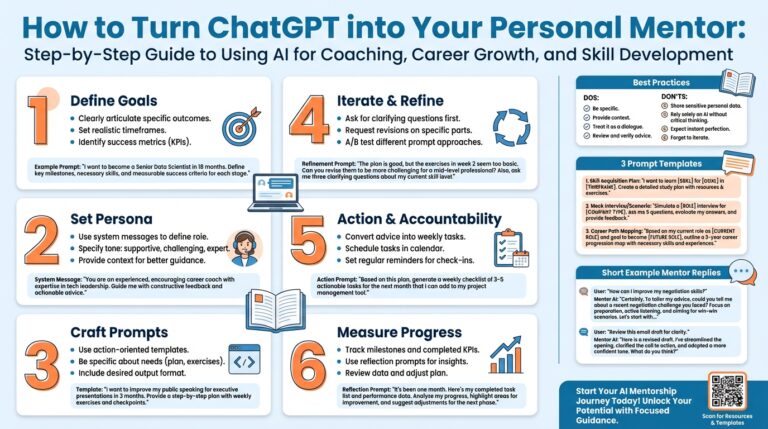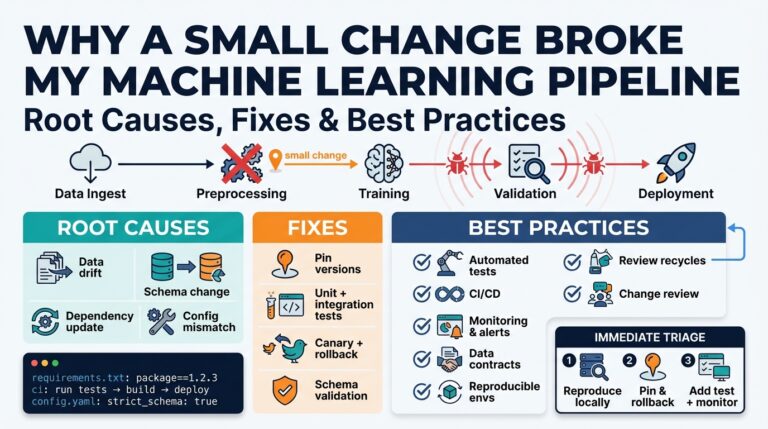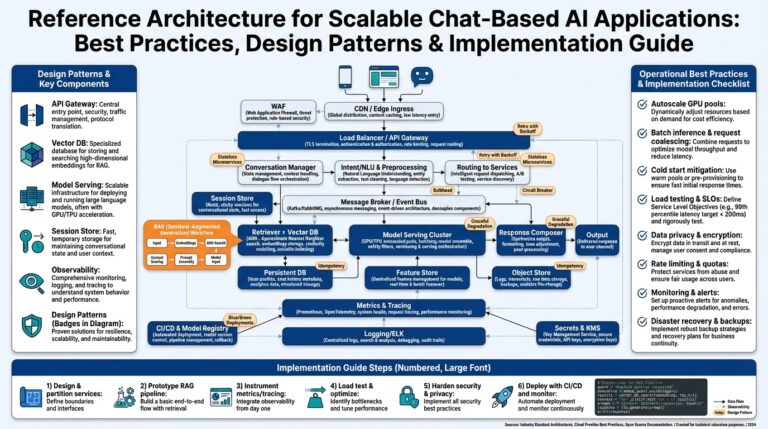The Evolution of Data Science Roles
The landscape of data science roles has seen remarkable transformation since the inception of the field, driven by technological advancements and evolving business needs. The early days of data science were dominated by a jack-of-all-trades approach, where professionals were expected to manage every aspect of the data pipeline, from data wrangling to model deployment. However, as the discipline has matured, roles have diversified to accommodate specialized skills and expertise.
Initially, a “Data Scientist” was viewed as a unicorn – a person expected to possess not only statistical prowess and programming skills but also domain knowledge and business acumen. The expectation was that they could maneuver through every stage of a project independently, whether understanding complex data systems, designing algorithms, or presenting data-driven insights to stakeholders.
Over time, as the demand for data-driven strategies increased across industries, organizations recognized the need for more targeted roles within data science teams to enhance efficiency and effectiveness. This shift led to the emergence of specialized roles such as Data Engineers, whose primary focus is on data architecture, ETL (Extract, Transform, Load) processes, and ensuring data quality. They act as the backbone of data ecosystems, constructing and managing scalable data infrastructures that provide seamless access to data for analysis.
Parallel to the rise of Data Engineering, the demand for Data Analysts also surged. These professionals concentrate on interpreting and visualizing data, allowing organizations to uncover actionable insights from raw datasets. Their role is pivotal in bridging the gap between technical analyses and business decision-making, as they translate complex data findings into straightforward, digestible formats for non-technical stakeholders.
As machine learning models and AI technologies became more sophisticated, the role of Machine Learning Engineers gained prominence. Unlike traditional data scientists, these specialists are tasked with designing, building, and deploying scalable machine learning models. They focus on optimizing algorithms for performance and integrating models into existing user interfaces and systems, ensuring that businesses can leverage AI capabilities seamlessly.
The evolution continues with emerging roles like Data Product Managers and AI Ethicists. Data Product Managers integrate product management skills with data expertise to develop data-centric products and services, ensuring alignment with business strategy. On the other hand, AI Ethicists address the growing concerns about data privacy, bias in AI models, and the ethical implications of data use, guiding organizations towards responsible AI deployment.
Each of these roles reflects the dynamic nature of data science as it adapts to the technological landscape and the specific requirements of different industries. Modern data science teams are increasingly collaborative, with specialists working in concert to deliver comprehensive, precise, and ethical data-driven solutions. This evolution signifies a move away from the “all-in-one” data scientist, towards a multidisciplinary approach that harnesses specialized skills to meet complex challenges, ensuring that data science continues to drive innovation and value in organizations.
Impact of Automation and AI on Data Science
Technological advances in automation and artificial intelligence (AI) are significantly reshaping the field of data science, affecting both its methodologies and its professionals. Automation tools and AI systems can now handle many tasks that were once the exclusive domain of data scientists, allowing for increased efficiency and the automation of routine processes.
Automation in data science often begins with data collection and preprocessing, where tools can scrape, clean, and organize vast datasets much faster than human effort. These automated processes use advanced algorithms to identify missing data, correct inaccuracies, and ensure that datasets are comprehensive and ready for analysis. This transformation at the foundational level liberates data scientists from tedious preliminary tasks, allowing them to focus on higher-level analytical work.
In analytics and modeling, AI and machine learning (ML) algorithms can automate model selection and hyperparameter tuning. Tools like AutoML streamline the creation of machine learning models, ably selecting the algorithm and adjusting parameters for optimal performance. This automation does not render data scientists obsolete; rather, it augments their capabilities, allowing them to devote more time to interpreting results and crafting strategic business solutions based on the models.
Furthermore, AI-driven analytics platforms can generate predictive insights automatically. They utilize extensive datasets and high-powered computation to discover patterns and forecast future outcomes, providing businesses with actionable intelligence without requiring direct human intervention at every stage. This level of automation is crucial for handling real-time data analytics, especially in scenarios where swift decision-making is imperative, such as in financial markets or emergency response operations.
Automation’s impact on data reporting and visualization is also noteworthy. AI platforms can autonomously generate detailed reports and visual representations of data, offering interactive dashboards that enable stakeholders to explore data insights without needing to possess deep technical skills. These tools democratize data access, allowing individuals across an organization to make data-driven decisions, enhancing cross-functional collaboration and agility.
However, the infusion of automation and AI into data science also necessitates new skill sets among data professionals. As routine tasks become automated, data scientists must shift their focus to developing skills in areas like AI ethics, algorithm interpretability, and strategic implementation. Practitioners now need to ensure AI systems are fair, accountable, and transparent, which involves a keen understanding of bias in machine learning models and the capacity to communicate these complex issues to non-technical audiences.
Additionally, there is an increasing demand for skills related to overseeing automated systems, such as monitoring AI performance and maintaining data governance standards. This development aligns with the broader trend of the data science field moving towards a more integrated approach, where data professionals work collaboratively with AI technologies to drive innovation and maintain ethical standards.
Ultimately, while automation and AI are reshaping how data science operates, they are also expanding the role of data professionals. By automating mundane tasks and offering sophisticated analytical capabilities, these technologies empower data scientists to deliver more value, crafting refined insights and steering the strategic direction of the organizations they serve. This transformation represents an evolution of roles, not a replacement, positioning data science at the forefront of technological progress and business evolution.
Emerging Specializations within Data Science
The data science landscape continues to grow, driven by the constant evolution of technologies and methodologies. As traditional roles dissolve into more nuanced positions, several emerging specializations are taking center stage, each providing opportunities for growth in distinct facets of the industry.
Data Privacy and Security Specialists
Data security has become paramount as organizations handle increasingly sensitive information. Specialists in data privacy focus on safeguarding data by implementing encryption, developing robust security protocols, and ensuring compliance with legal standards like GDPR and CCPA. They bridge the gap between data science and cybersecurity, tailoring solutions that prevent breaches and unauthorized access, while also capable of responding to threats swiftly and efficiently.
Natural Language Processing (NLP) Engineers
The surge in unstructured data such as text and voice, along with advances in AI, has spurred demand for NLP Engineers. These specialists develop computational models that enable machines to understand and respond to human language effectively. They work on speech recognition, sentiment analysis, and chatbots, among other applications. By leveraging complex algorithms and deep learning techniques, NLP Engineers aim to enhance human-computer interaction, opening pathways for developing more intuitive and accessible AI solutions.
Data Visualization Experts
No longer a peripheral skill, data visualization is emerging as a dedicated specialization. Experts in this field use tools like Tableau, Power BI, and D3.js to convert complex datasets into intuitive, interactive visual formats. By crafting compelling narratives through visuals, they empower stakeholders to make informed decisions quickly. Their work extends beyond simple charts to designing dashboards that integrate seamlessly across various platforms, ensuring real-time data interaction and accessibility.
Machine Learning Operations (MLOps) Engineers
As machine learning models grow in complexity, MLOps Engineers ensure these models are robustly integrated into production environments. Their expertise lies in deploying, monitoring, and scaling machine learning systems, addressing issues such as version control and continuous integration. These engineers automate testing and validation of models, contributing to initiatives for sustainable AI by reducing model drift and maintaining performance over time.
Ethical AI Advisors
With artificial intelligence impacting nearly all aspects of society, there is an urgent demand for specialists who address the ethical dimensions of AI deployment. Ethical AI Advisors analyze the societal impacts of AI applications, looking at concerns such as bias in algorithms, data transparency, and fairness. They help organizations adhere to ethical guidelines, ensuring AI’s benefits are equitably distributed and risks minimized, fostering public trust in data-driven technologies.
Digital Twins Engineers
An exciting specialization at the intersection of IoT and data science, Digital Twins Engineers focus on creating virtual models of physical assets or systems. These replicas are used to simulate scenarios, predict outcomes, and optimize processes in real-world environments, such as in manufacturing or urban planning. By leveraging sensor data and advanced simulations, these engineers enable organizations to innovate and adapt with greater agility and foresight.
The rise of these specialties illustrates the richness of career paths within data science, each responding to modern challenges and technological advancements. As the field continues to diversify, professionals are required to possess not only foundational data science skills but also a specialized understanding relevant to their domain, driving innovation and value creation in myriad ways.
Essential Skills for Future Data Scientists
Developing a comprehensive set of skills is crucial for aspiring data scientists as they navigate an increasingly complex landscape. As the field evolves, these essential skills will empower them to meet modern challenges effectively.
A fundamental understanding of programming languages like Python and R is indispensable. Python, known for its versatility and extensive libraries like Pandas, NumPy, and SciPy, allows data scientists to perform data manipulation, analysis, and visualization with ease. R, a language built specifically for statistics, offers a plethora of packages for linear and non-linear modeling, time-series analysis, and more. Mastery of these languages enables efficient data handling and algorithm development.
Proficiency in statistical analysis and mathematical foundations forms the backbone of data science. Skills in probability, statistics, linear algebra, and calculus are necessary to design algorithms, evaluate model performance, and draw valid conclusions from data. For example, understanding the central limit theorem helps in making inferences about population means, while knowledge in Bayesian statistics can enhance predictive modeling.
Data wrangling and preprocessing skills are integral to transforming raw data into a usable format. This involves dealing with missing values, managing outliers, and encoding categorical variables, as well as normalizing or standardizing datasets. SQL remains an essential tool for retrieving and managing data stored in relational databases efficiently, enabling data scientists to query vast amounts of data seamlessly.
Visual storytelling through data visualization is another vital skill. Creating insightful visualizations with tools like Tableau, Power BI, or Matplotlib transforms complex data sets into easily interpretable formats. This facilitates communication of findings to stakeholders, enabling informed decision-making. Effective data visualization tells a story, highlighting trends, patterns, and outliers that a dataset may present.
Machine learning expertise is crucial, as data scientists are often responsible for constructing predictive models. Understanding different algorithms, such as regression, classification, clustering, and neural networks, is necessary to address diverse business problems. Familiarity with tools like Scikit-learn, TensorFlow, and Keras aids in implementing, testing, and deploying machine learning models efficiently.
Acquiring domain knowledge enhances the ability to apply technical skills effectively. It involves understanding industry-specific challenges and data, which allows data scientists to tailor analyses and develop solutions that align with business goals. For example, in the healthcare industry, knowledge of medical terminologies and electronic health records is essential for accurate data interpretation.
Critical thinking and problem-solving capabilities cannot be overstated. Data scientists must approach problems methodically, formulating hypotheses and using thorough analytical techniques to test and verify results. This involves awareness of potential biases, evaluating assumptions, and iterating on model designs to improve their accuracy and robustness.
Communication skills, both verbal and written, are essential for articulating complex technical concepts to non-technical stakeholders. Data scientists need to present their insights clearly and concisely, whether in meetings, written reports, or visual presentations. This ensures that their analyses drive impactful business decisions and strategies.
Finally, an understanding of ethical standards and data governance is increasingly important. As data science applications expand, awareness of privacy issues and ethical considerations ensures responsible usage of data. Data scientists should strive to maintain transparency, mitigate biases in models, and adhere to privacy laws like GDPR to uphold ethical standards.
In conclusion, the combination of technical prowess, domain expertise, critical thinking, and a strong ethical framework constitutes the essential skillset for future data scientists, equipping them to adapt and excel in a rapidly evolving field.
Industry Demand and Career Outlook
The demand for data science professionals continues to escalate across multiple industries, spurred by the digital transformation and an increased reliance on data-driven insights to guide strategic decisions. Companies are leveraging big data, artificial intelligence, and advanced analytics to outperform competitors and refine customer experiences, making skilled data scientists indispensable.
Industries such as finance, healthcare, e-commerce, manufacturing, and telecommunications are particularly heavy consumers of data science expertise. In finance, for instance, data scientists are employed to design and refine algorithms for real-time fraud detection and to develop predictive models that forecast market trends, thus enhancing investment strategies. In healthcare, data professionals analyze patient records and biomedical data to improve diagnostic accuracy and optimize treatment plans, contributing significantly to personalized medicine approaches.
The technological landscape in sectors like e-commerce is pushing demand further as businesses look to personalize user experiences and optimize supply chains through intricate consumer behavior analysis and demand forecasting. Manufacturing industries are integrating Industry 4.0 technologies which rely heavily on data science for predictive maintenance and quality control, ensuring efficiency and minimizing downtime. Telecommunications companies utilize data analytics to enhance network optimization, understand customer churn, and deliver targeted marketing campaigns.
This broad spectrum of applications results in a robust career outlook for aspiring data scientists. According to industry reports and market analysis, roles in data science are among the fastest growing in technology sectors, with demand continuing to outstrip supply. This has led to competitive salaries and lucrative compensation packages designed to attract top talent. Additionally, as automation begins to take over routine data tasks, there is a growing need for professionals capable of overseeing AI systems, refining models, and ensuring ethical compliance—roles that require a deep understanding of both technical and strategic components.
The career progression within data science roles is also expansive, offering opportunities to move into specialized positions such as Data Engineers, Machine Learning Engineers, or even strategic roles like Data Product Managers and Chief Data Officers. Organizations are on the lookout for professionals who not only possess technical skills but can also synthesize business intelligence and offer insights into how data can drive growth. This trend underscores the importance of continual learning and adaptability in navigating data science careers.
Educational institutions and online learning platforms have responded to the rise in demand by offering a plethora of courses and certifications tailored to skill development in this field. Notably, professionals often take advantage of these resources to acquire or deepen expertise in areas like machine learning, AI ethics, and domain-specific analytics. Furthermore, certifications such as Certified Analytics Professional (CAP) or Microsoft Certified: Azure Data Scientist Associate are becoming valuable credentials in the job market, signaling proficiency and commitment to potential employers.
Overall, the burgeoning demand for data science roles, coupled with a promising career outlook, makes it an attractive field for current and aspiring professionals. By staying abreast of industry trends and continuously honing their skills, data scientists can ensure they remain at the forefront of innovation and technological advancements, effectively shaping the future of businesses globally.
